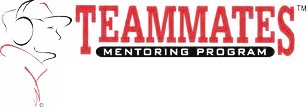
Article From The Ralston Recorder
By Adam Klinker
Recorder Managing Editor
Published: Monday, July 5, 2010 12:10 PM CDT
In 1991, Tom Osborne stood at the promontory that was his in college football and took stock of the lay of the land.
What he saw disheartened him.
Traveling from city to city across the country, meeting with young men interested in donning Cornhusker scarlet and cream, Osborne bore witness to a society under siege.
In many recruiting visits, the legendary coach was going into neighborhoods where gangs reigned and drugs were the coin of the realm.
Even in Lincoln, Osborne saw growing problems with violence, drugs and a vicious, intergenerational cycle of students dropping out of school.
Athletics was a way out for some, but Osborne and his wife, Nancy, wondered what they could do to reach out to all children who were growing up in a world fraught with complications that didn’t seem to be there even 30 years ago.
“We thought we had a valuable resource in our football team,” Osborne said. “So the next day, at a team meeting I just asked.”
The coach stopped with the Xs and Os and asked his players if any of them would be willing to meet one-on-one with a middle school student in the Lincoln Public Schools for one hour a week to provide guidance – to provide just presence, even, for a student who might be at-risk.
Twenty-two hands went up and Osborne’s Teammates Mentoring Program was born.
Last Friday, Osborne was at the Ralston Chamber of Commerce’s Small Business Council luncheon to share the story of what Teammates has been doing over the last 19 years, how it grew from a 22-pair mentoring program in Lincoln to a statewide network of more than 140 participating elementary and secondary schools, including seven in Ralston.
Addressing a crowd of about 100, Osborne began with a story from his days as a representative in the U.S. House – an office he held from 2001 to 2007. He heard a speech from Great Britain’s then-prime minister, Tony Blair, in which Blair stated, “All power seems eternal, but as Britain knows, it’s transitory. Nothing lasts forever.”
Osborne realized Blair was sending warning signals about how societies can diminish and decay from within. It was exactly the kind of thing Osborne was working to forestall with the Teammates program.
“Sometimes we take for granted the things we know, we think they’ll be there forever,” he said. “I’m not here to say that it’s Armageddon, I’m not here to say it’s all doom and gloom. But all cultures can be one generation away from disintegration. The question is: what do you do about it?
“There’s one thing we’ve hit on, and it’s not a silver bullet, but it does work: mentoring.”
Teammates mentoring involves an adult and student pair who meet for one hour a week. They can talk, share a meal or take part in other activities.
All the mentor really needs to do, Osborne said, is be present in the child’s life. A mentor, he said, is someone who cares unconditionally and provides affirmation and a vision for the child’s life and future.
“If an adult, with no other obligation but to just spend time – one hour a week – with you, for the student, it really means a lot,” Osborne said.
Osborne said some 35,000 students in the metro area could benefit from a mentor. Currently, about 3,000 students are paired with mentors.
“Unless people are interested in these kids, we’re going to keep waking up to three or four shootings and continue to see the 40 percent dropout rates,” he said. “That causes society to become unsustainable. We certainly need financial support, but what we really need is mentors.”
It costs about $470 per mentor-student match, per year, Osborne said. Most matches last about three years.
“It’s cost effective,” he said. “The money is a pretty good investment when you consider someone who drops out of school, on average costs us $200,000 over their lifetime.”
Teammates has also employed Gallup to study the effectiveness of the program and discovered 85 percent of its mentored students show marked improvement in attendance.
A mentored student also shows an average 50 percent improvement in academic work, generally.
There is also a 75 percent drop in disciplinary incidents among mentored students.
“It works,” Osborne reiterated. “We hope you might consider being a mentor.”
At the conclusion of the program, the Small Business Committee presented Osborne with a check to the Teammates Foundation for $750.
